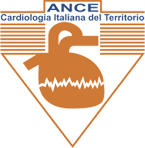This investigation sought to quantify the risk factors for short-term readmission in patients with heart failure (HF). Electronic databases were systematically searched for studies reporting relative risk, odds ratio, and hazard ratio for the combined primary outcome of all-cause hospital readmission or all-cause mortality ≤90 days from discharge of patients with HF. Clinical characteristics, study design, type and incidence of outcome, univariable effect sizes for each risk factor, and their associated 95% confidence intervals were extracted. Each univariable effect size was pooled and computed in a separate meta-analysis using random-effects models weighted by inverse variance. The frequency of significance of each risk factor in multivariable models was also assessed to confirm their independence. Sixty-nine studies (2,038,524 patients) were included and 144 factors were reported, including 32 reported more than twice. The significant associations of the combined primary outcome were chronic lung disease, chronic kidney disease, atherosclerotic vascular disease (peripheral, coronary, and cerebrovascular), diabetes, anemia, lower systolic blood pressure, previous admission, multidisciplinary treatment, and use of beta-blockade and angiotensin-converting enzyme inhibition or angiotensin receptor blockade. In multivariable analyses, most of these variables remained independently associated with the combined primary outcome. However, age, male gender, black race, hypertension, dyslipidemia, smoking, atrial fibrillation, cancer, and uses of diuretics, aldosterone antagonists, and digoxin were not significant. In conclusion, noncardiovascular co-morbidities, poor physical condition, history of admission, and failure to use evidence-based medication are more strongly associated with 90-day readmission or death than standard risks in patients with HF.
The American Journal of Cardiology
http://dx.doi.org/10.1016/j.amjcard.2015.11.048
A cura di Calogero Calcullo
